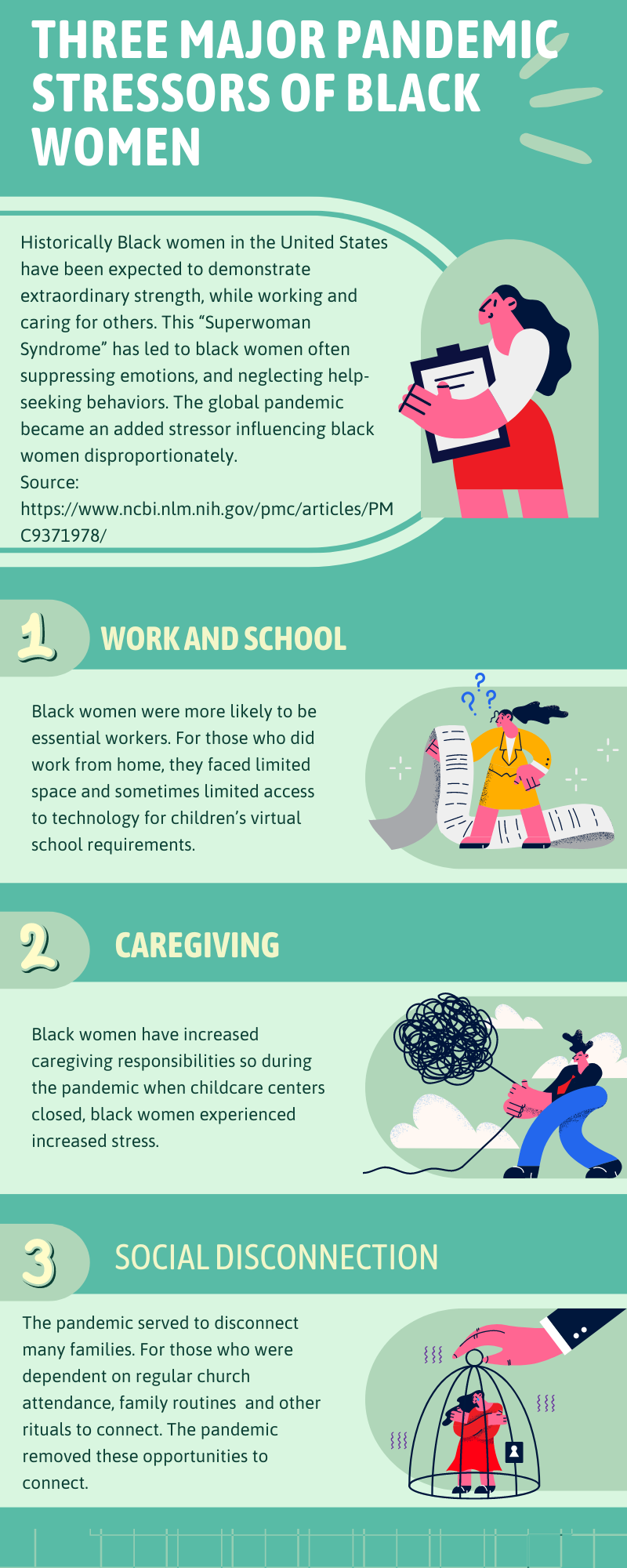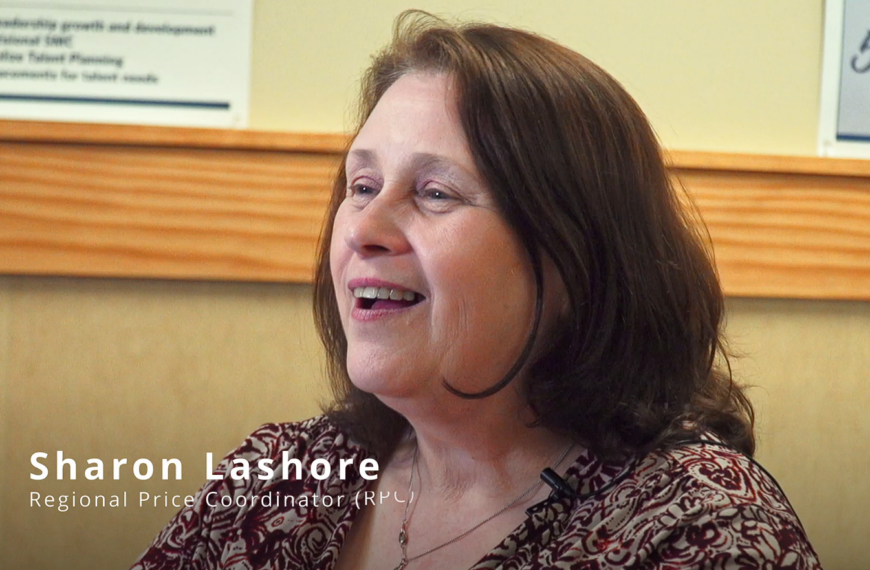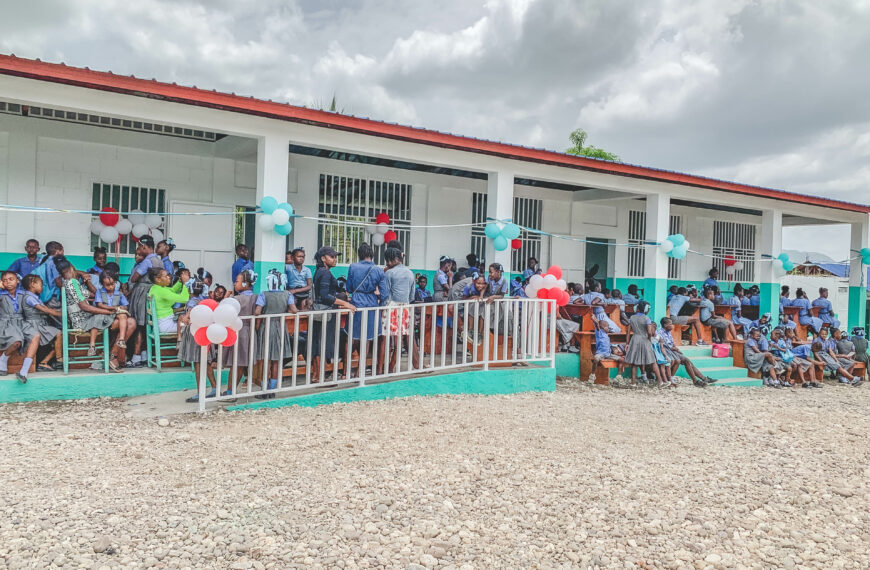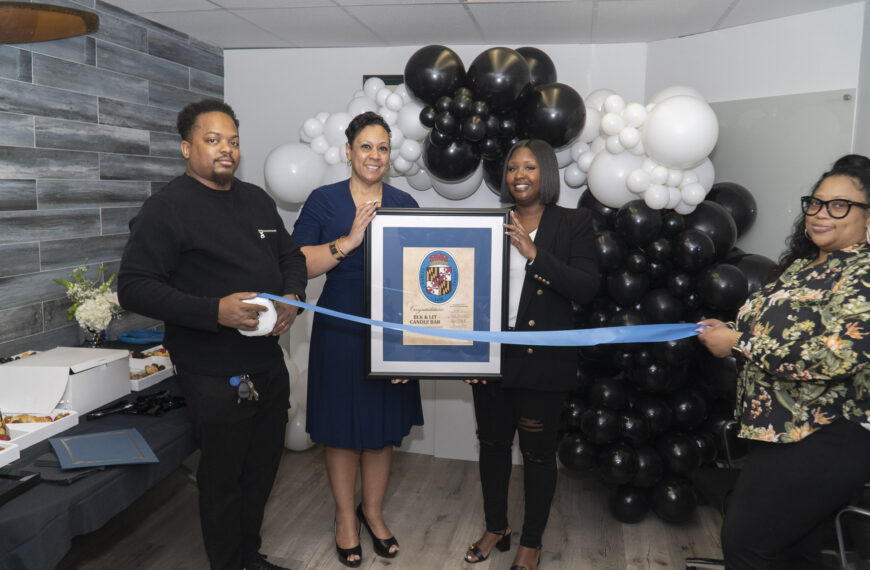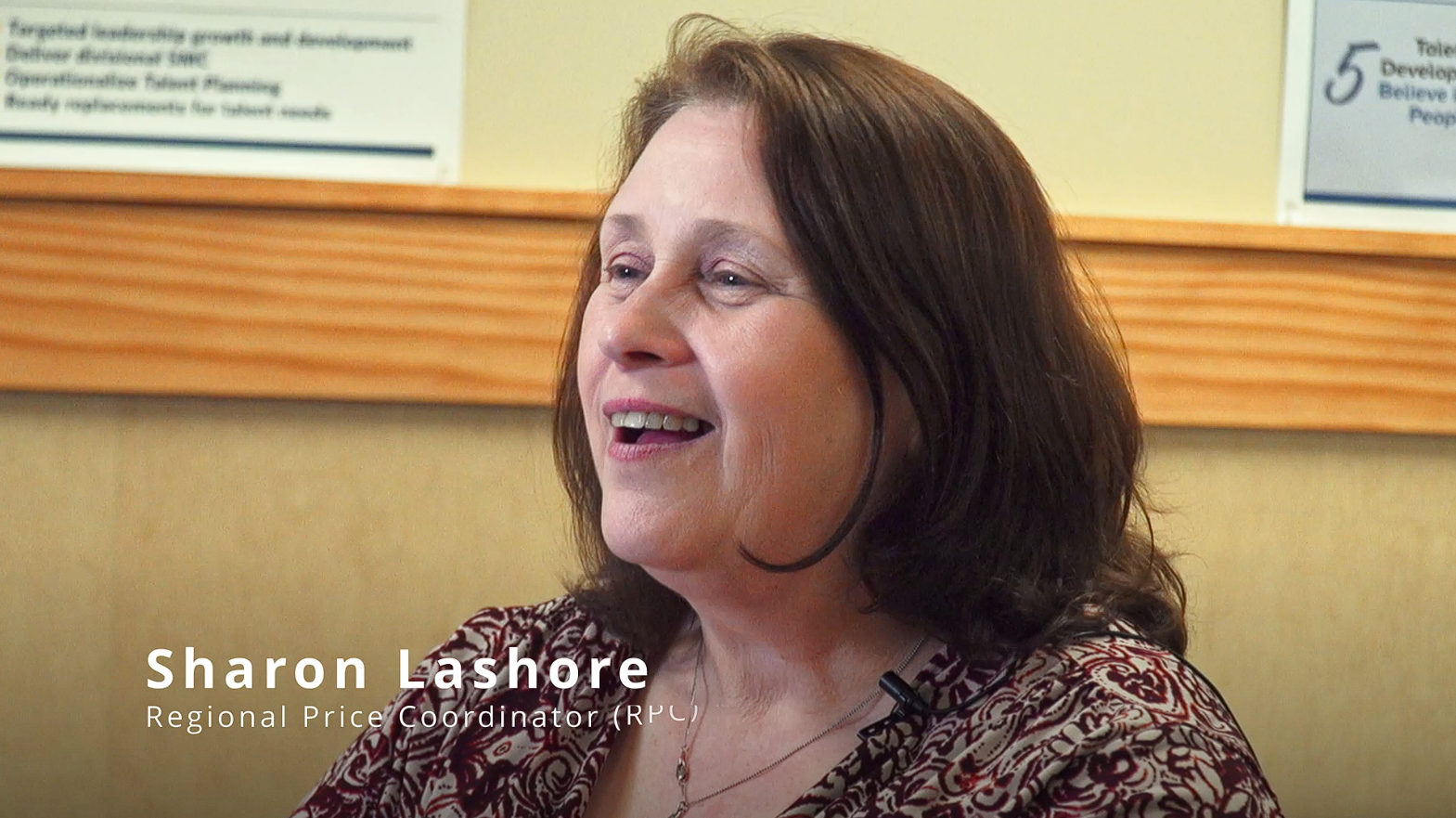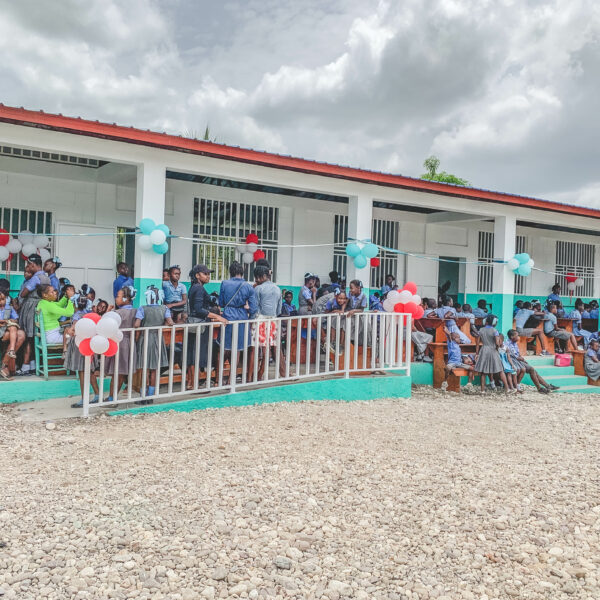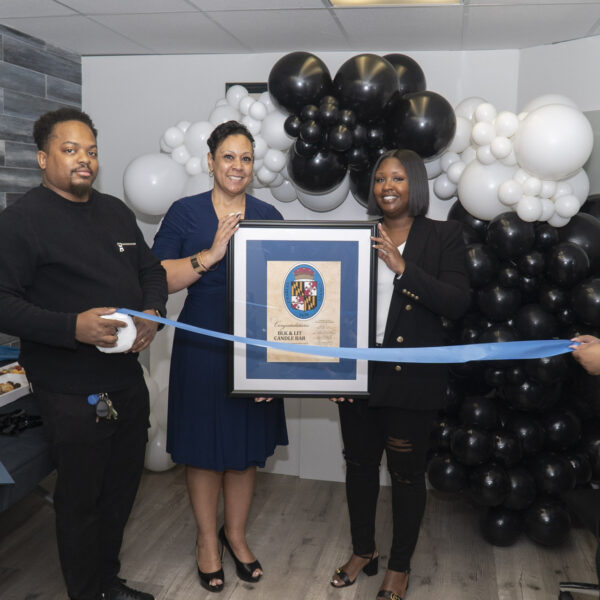“I had to completely stop working in September 2021. It felt like it was a cloud of grief over me, for that entire time, no matter what I did. The situations around me were fine, but I just couldn’t snap out of it,” said Kathryn Guzman-Russell, Development Operations Coordinator of the College of Southern Maryland.
For Kathryn Guzman-Russell, the pandemic has brought to life, new options and expectations. She recently transitioned out of her role as member services coordinator for the Charles County Chamber of Commerce into the role of Development Operations Coordinator at the College of Southern Maryland, but her journey there was full of twists and turns.
“March 2021 was actually when I contracted COVID, so I was out of work, working very limited hours, from March to April 2021, so that was a deep pause. So for me, it was okay, I wasn’t able to be as robust as I usually am with sales and I actually got a little bit of anxiety from that. And I was like, what is going on with me?” said Guzman-Russell.
The entire world shifted in March 2020 the United States shut down its economy and gave a mandate for its citizens to “shelter in place”. Schools shut down, many workers shifted to working remotely and social distancing requirements were in place globally.
Guzman-Russell’s journey during the COVID pandemic led her to a series of career changes after working 16 years as an Advertising Executive for Maryland Independent News.
Guzman-Russell went to urgent care for the fourth time and her doctor, who formerly served in the Navy, was surprised when he asked her, how she was doing.
“And I said I guess I’m okay, I’m not on a ventilator. And he looked at me and said, you sound like one of my PTSD patients. I’m like I’m sorry what are you talking about? And the look on his face, mind you, he’s, you know, in full PPE, the mask and the face shield. He couldn’t just believe my answer. Because my desire to just go and I guess, put my health aside, was confusing to him.”
At this time, Guzman-Russell took three months of extended leave which ultimately led to her choice to prioritize her own needs in her career decisions.
“I needed to make sure I wasn’t repeating the same steps and you know stuck in a position where I knew I could elevate. I needed to protect myself,” she said.
Guzman-Russell is not alone. Black women in particular are making major career moves post-pandemic.
“I think when we started the pandemic, black women were still very much in the routine of trying to balance everything, show up be strong, be productive, with social unrest with the murder of George Floyd, Ahmad Abrey, Brianna Taylor, we’ve got to take a step back and make sure we were taking care of ourselves and the mental toll it was taking on us. We started to see a slow down and reprioritizing of ourselves during the pandemic,” said Lauren James, a career coach and DEI expert.
Career coach, Lauren James observed these career transitions firsthand. Black women are approaching life differently as priorities shift from thriving to surviving.
“It’s been a traumatic experience for black women especially, the American Psychological Association showed that black women are more likely to report feeling high levels of stress. That speaks to social unrest, uncertainty, taking care of ourselves, families, children, making sure everyone is safe,”
– Lauren James, Career Coach & DEI Expert
Ashley Graham, IT program specialist, entrepreneur and author, spent more than two years, working and running her business remotely. then she decided – enough.

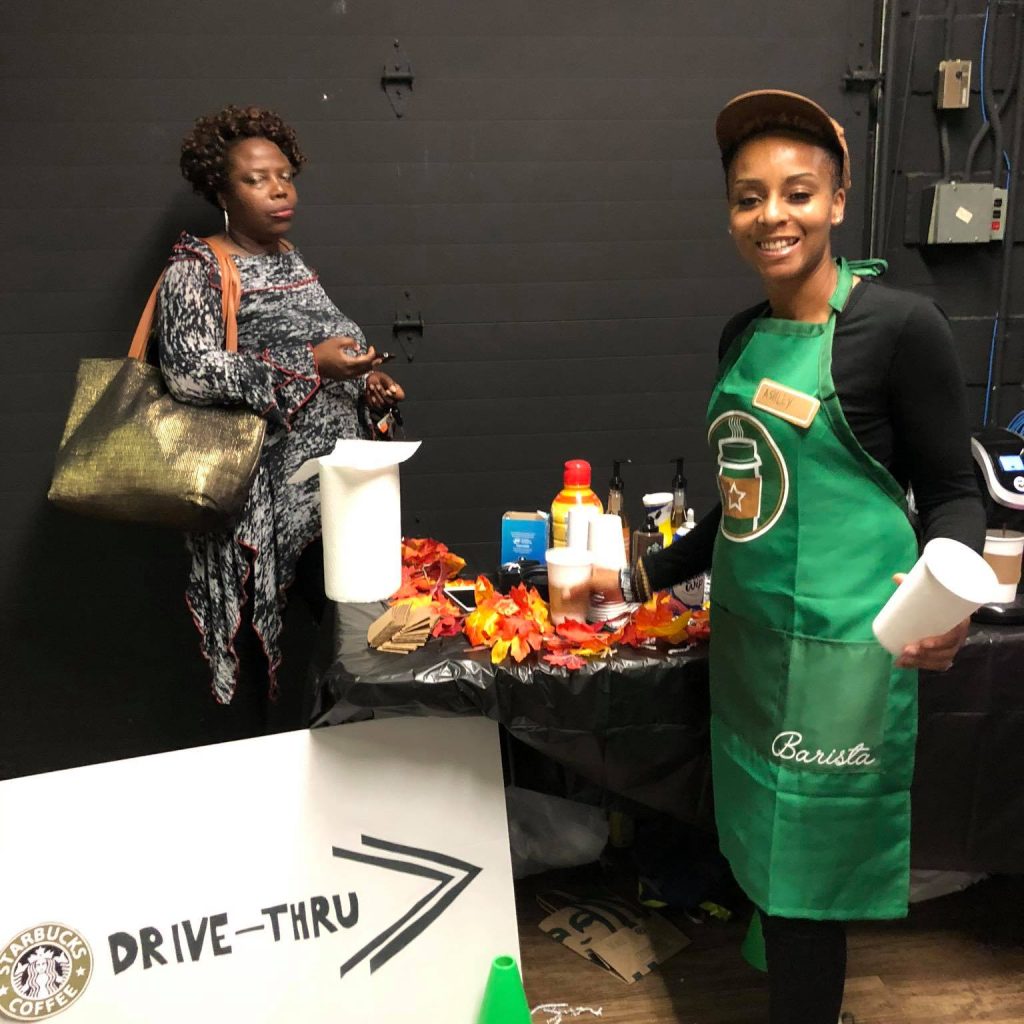

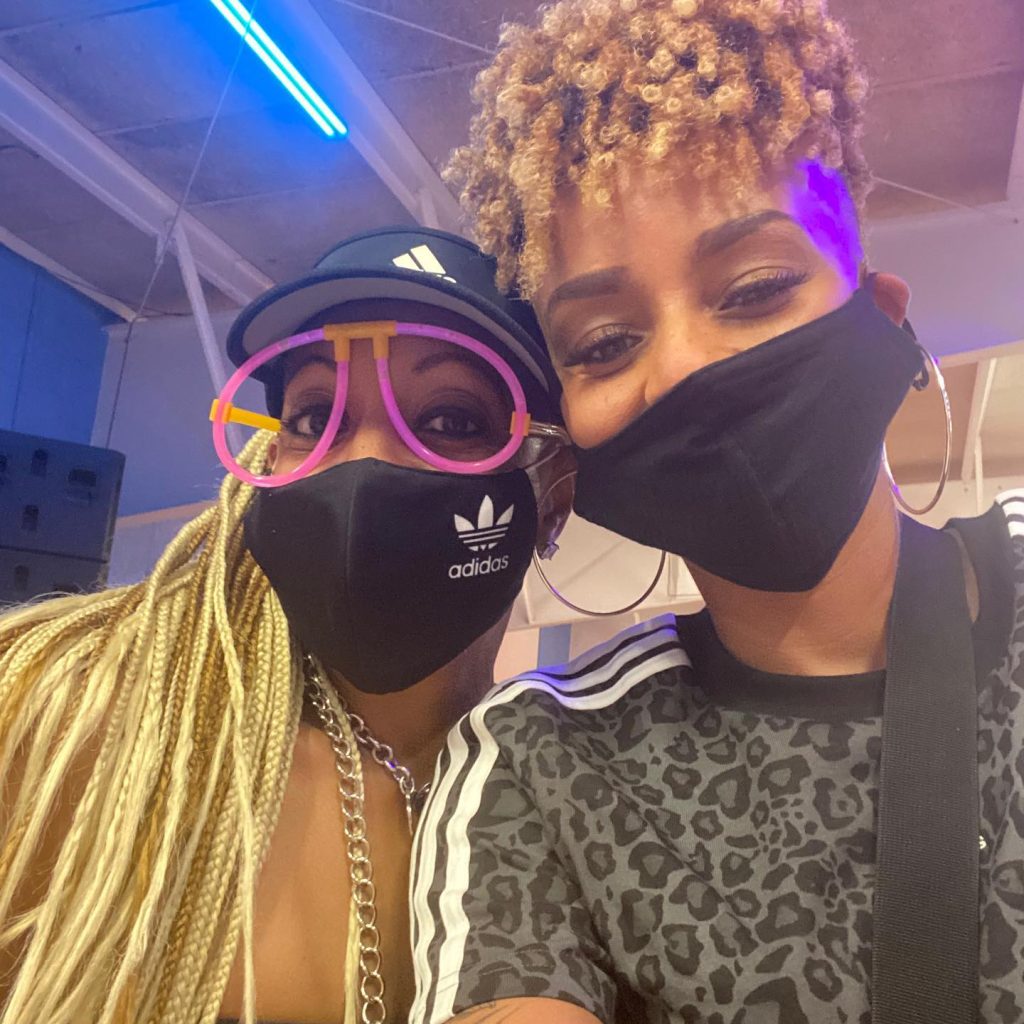
“So prepandemic so I have kids, so I remember rushing to get them to school. I was in that long carpool line, trying to get them to school, trying not to be the person to hit the horn (laughing) honk! Honk! I used to drop them off and then run to work to try to get to work by 8 or 8:30 am. So of course, that was a lot,” said Graham.
Graham spent three hours driving to Bethesda, from Waldorf, working, and then rushing back home. in addition to her full-time job, Graham was always busy as a serial entrepreneur – a publishing company, nonprofit children’s writing program, and an online coffee shop.
“The pandemic made me realize that I was busy and it made me overly busy and probably too accustomed to being busy because silence was not really my best friend. And not being able to do – because I’m a doer. I do a lot,” she said chuckling.
Being home for more than two years, caused Graham to value the workplace experience and relationships all the more.
“I think I wanted that interaction again, and that is when I started looking and this position came about where I knew I would be on site a couple of days and then home. So the flexibility of being hybrid was really big for me, using my skillset as needed, but being able to manage people and also talk to people – that was good for me,” said Graham.
Graham’s sentiments are backed by research. A Harvard Business Review article shared that our connection to others influences our motivation.
“I had to get back into the culture of people. The first day I came, I dreaded people coming to introduce themselves, that’s one thing I hated about being new. That took me a while to get used to. I’m starting to get used to it, I’m starting to say, hey yeah, we can do lunch,” Ashley said.
The Biden administration has declared that the nation’s public health state of emergency will be over soon – on May 11th. Career expert, Lauren James, shares this caveat before we jump back into business as usual.
“It could be easy to fall back into old routines that have been placed on us since the time we were kids. We’ve been conditioned to think about what our lives look like, to become mothers, to get a job, but its important to always come and check in with ourselves and make sure what we’re doing actually speaks to our souls because living a fulfilling life, that’s important to focus – as we make this transition back into normalcy,” Lauren said.
– Lauren James, Career Coach & DEI Expert
The world has been shaken by a global phenomenon, but hopes are that we will come back more resilient.
“The pandemic showed us – businesses were closing down, lives were lost, you have to be like a rubber band and just bend, quickly and unexpectedly, preparing myself mentally for that. The pandemic – anything can happen, that’s what I was able to do, be prepared, and my ‘prepared’ was being opened to change,” said Guzman-Russell.
Though Guzman’s position became unavailable, a new opportunity opened up.
“I had to do Uber at one point and that’s how I met the President and CEO of the Chamber of Commerce, Bonnie Grady,” said Guzman-Russell.
Guzman-Russell worked at the Chamber of Commerce for 13 months, but with new knowledge and experience, she decided to pursue the career she truly wanted.
“I got a call from CSM, you know, within I would say 24 hours of me applying. I was like wait, this is going so fast and to be completely honest ever since I moved to Charles County, CSM was always one of the places I’ve always wanted to work,” said Guzman-Russell.
Like many other black women, post-pandemic, Guzman-Russell has experienced an arduous journey of discovery, that has led to more clarity and alignment.
“We’re taught to put everyone else before ourselves and I think the pandemic forced us to realize that we had to take another approach in how we work, how we live, and how we show up in the world,” advises James. Black women are finding a healthier balance and are learning to choose a softer side.
Does this story resonate with you? Here are three stressors that black women experienced during the pandemic.
